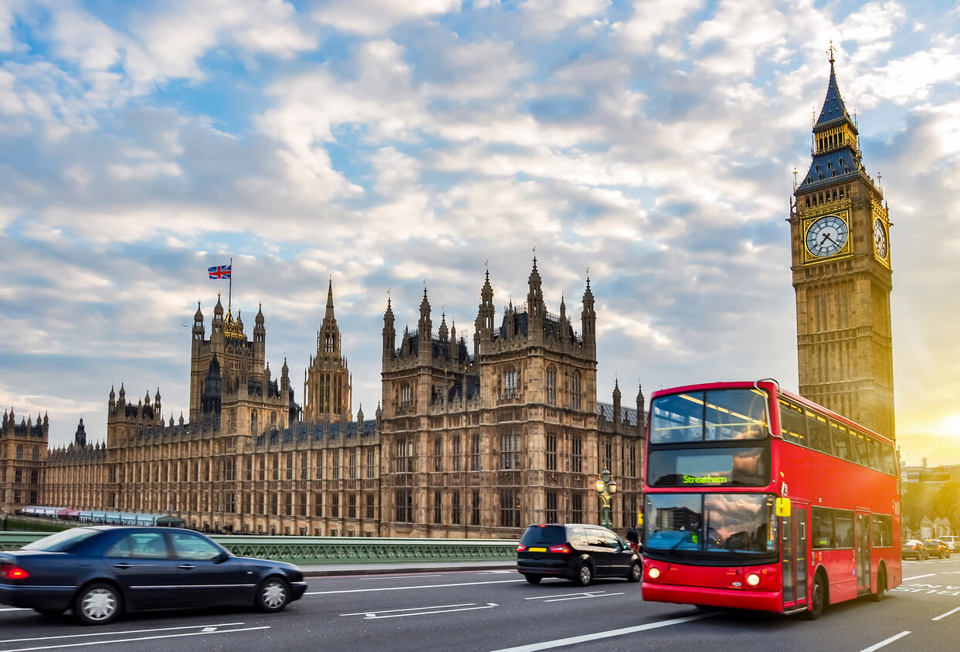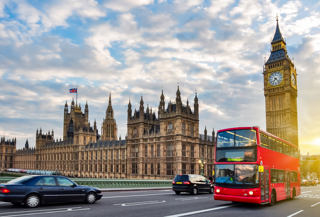The Mayor of London, Sadiq Khan, has confirmed that the ultra-low emission zone (ULEZ) will be expanded up to the north and south circular from October 25, 2021.
Estimates suggest that 100,000 cars, 35,000 vans and 3,000 lorries will be hit by the new zone which will cover an area 18 times larger than the central London zone, which takes effect from April 8, 2019.
Khan also announced that he will tighten the standards for buses, coaches and lorries across the whole of London from October 2020, using the same boundary as the existing low emission zone.
The expanded ULEZ will be managed in the same way as the central London ULEZ and will operate on top of the congestion charge, 24 hours a day, seven days a week, 365 days a year.
Drivers within the expanded zone using non-compliant vehicles will pay a daily ULEZ charge of £12.50, 24 hours a day, 365 days a year.
These include: motorbikes that do not meet Euro 3 standards; petrol cars and vans that do not meet Euro 4 standards (roughly the equivalent to not being more than fifteen years old for cars in 2021); and diesel cars and vans that do not meet Euro 6 standards (roughly the equivalent to not being more than six years old for cars in 2021).
Across London diesel buses, coaches and lorries will need to meet the Euro 6 standard.
Khan, said: “I promised hard-hitting measures to tackle our shameful air pollution and today city hall is confirming the next stage of our plans to expand the ultra-low emission zone up to the north and south circular roads.
“We’re doing everything in our power to tackle this issue and are starting to see improvements in air quality with the wide-ranging action we’ve taken already on tackling the most polluting cars, and cleaning up our bus and taxi fleet.
“An expanded ultra-low emission zone, in conjunction with the central London ULEZ, will really help transform the air that millions of Londoners breathe.”
Private hire fleet operator Addison Lee welcomed the Mayor's announcement and said its vehicles will be fully compliant when the central London ULEZ launches next year.
However, a spokesman told Fleet News: “To help facilitate the migration of fleets such as ours to meet forthcoming zero emission capable (ZEC) requirements, which will be a requirement by 2020, much more needs to be done, in particular the installation of a comprehensive rapid charge point network in London.
“Research we commissioned last year shows that converting one taxi or private hire vehicle to electric power delivers an environmental benefit equivalent to 10 privately owned cars. But to allow just a quarter of the capital’s private hire fleet to go electric, London would require 2,060 rapid charging points.
“We look forward to engaging with the Mayor and his electric charging taskforce to help deliver what London needs.”
Khan conceded that some motorists will need help switching to greener transport options and is urging the Government to deliver a diesel scrappage scheme.
Stuart Thomas, director of fleet and SME services at the AA, said: “The mayor’s plans to extend the ultra-low emission zone (ULEZ) to most of London from 2021 is a radical step, which some businesses may struggle to budget for in terms of increased costs.
“Currently, there is too much stick and not enough carrot in the mayor’s plans to increase emissions standards for vehicles operating in the capital.
“Roadside emissions testing shows that the worst 10% of gross polluters cause 50% of the problem, which tend to be older buses, trucks, taxis and poorly serviced cars.
“We believe getting these vehicles off the road first via a scrappage scheme will help to soften the deal for smaller businesses, which will find it hardest to pay the extended fees in the future. We urge the mayor to consider such an introduction as a priority going forward.”
The Mayor said he listened carefully to feedback through the recent ULEZ consultation and has decided to give disabled tax class vehicles and specially adapted private hire vehicles until October 2025 to replace their vehicles. This gives these vehicles an extra 6.5 years from the start of the central London ULEZ or 4 years from the start of the expanded ULEZ to comply.
Similarly, charities have been given a longer period of time to replace existing minibuses. They will have a two-year sunset until October 2023.
Lilli Matson, TfL’s director of Transport Strategy, said: “We estimate that expanding the ULEZ will reduce road transport NOx emissions by a further 28 per cent across London, so this expansion is a huge step towards protecting the health of all Londoners.”
The Mayor is working with TfL to ensure London’s public transport lead the way in low emissions. TfL is no longer procuring double-deck pure-diesel buses and instead only procuring hybrid, electric or hydrogen buses, with all buses meeting the new standards across London by 2020.
TfL will also only allow new taxis in London that are zero-emission capable and newly manufactured private hire vehicles will need to follow suit from 2020.
RAC roads policy spokesman Nicholas Lyes said: “Residents and small businesses within this area now have just three years to become compliant with the Mayor’s emission standards. This means many now face the daunting challenge of having to spend substantial amounts of money on a newer vehicle or face a daily charge of £12.50 to use their vehicles from October 2021.
“These time pressures and costs will be keenest felt by those from low income backgrounds, as well as those who work in roles such as hospitality and depend on using a car at night when public transport is not readily available.
“Motorists currently have no quick and easy means of knowing for certain what Euro emissions standard their car, or one they are looking to buy, meets – so it is absolutely vital that a central database is developed as quickly as possible.”



















JOHN WILSON - 08/06/2018 18:30
THIS IS GOING TO CREATE GREAT HARDSHIP FOR POOR PEOPLE , AND THE SMALL FIRMS . IT WILL CREATE AN INCREASED CLASS DEVIDE !